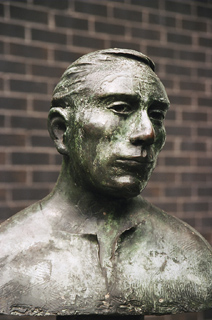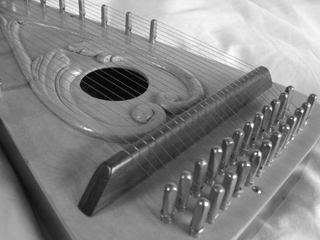I just re-read the short section on world fisheries in Bjorn Lomborg’s Skeptical Environmentalist, and noted that the level of analysis shown there is low enough to cast doubt on the rest of the book. He basically argues that:
- The global fish catch is increasing.
- We can always farm our way out of trouble.
- Fish aren’t that important anyhow (only 1% of human calories, 6% of protein).
He is seriously wrong on all three counts. On the matter of overall catch, that is a misleading figure, because it doesn’t take into account the effort involved in catching the fish. You could be catching more because you’re building more ships, using more fuel, etc. As long as subsidy structures like those in the EU and Japan remain, this is inevitable. While such technological advances can conceal the depletion of fish stocks, the reality remains. If we’re fishing above the rate at which a fishery can replenish itself, it doesn’t matter whether our catches are increasing or not. Or rather, it does insofar as it helps to determine how long it will be before the fishery collapses, like the cod fisheries of Newfoundland and the North Sea already have. Fisheries are also complex things. Catching X fish and waiting Y time doesn’t necessarily mean that you will have X fish to catch again. Much has to do with the structure of food webs, and thus energy flows within the ecosystem.
The idea that farming can be the answer is also seriously misleading. First and foremost, farmed fish are almost exclusively carnivorous. That means they need to be fed uglier, less tasty fish in order to grow. Since they aren’t 100% efficient at turning food into flesh, there is an automatic loss there. More importantly, if we begin fishing other stocks into decline in order to farm fish, we will just have spread the problem around, not created any kind of sustainable solution. As I have written about here before, serious pressure already exists on a number of species that are ground into meal for fish-farming. There are also the matters of how fish farms produce large amount of waste that then leaches out into the sea: biological wastes from the fish, leftover hormones and antibiotics from the flood of both used to make the fish grow faster and get sick less often in such tight proximity, and the occasional seriously diseased of genetically damaged fish escaping to join the gene pool.
I can only assume that Lomborg is right to say that “fish constitutes a vanishingly small part of our total calorie consumption – less than 1 percent – and only 6 percent of our protein intake.” Even so, that doesn’t mean that losing fisheries as a viable source of calories and protein would not be a terrible event. Humanity overall may not be terribly dependent, but certain groups of individuals are critically dependent. Moreover, the “it’s not all that important a resource anyway, so who cares if it goes?” attitude that is implied in Lomborg’s assessment fails to consider the ramifications that continuing to fish as we are could have for marine ecosystems in general and the future welfare of humanity.
One last item to identify is the fallacious nature of the 100 million tons a year of fish we can “harvest for free.” This is his estimate of the sustainable catch, and he then notes that we are only catching 90 million tons. He goes on to say that “we would love to get our hands on that extra 10 million tons.” First off, the distribution here matters. If the sustainable catch for salmon is five million tons and we are catching twenty, the overall figure doesn’t reflect the fact that salmon stocks will be rapidly destroyed. If we’re burning our way through, species by species (look at the wide variety of fish now served as ‘cod’ in the UK), then even a total catch below the aggregated potential sustainable yield could be doing irreparable harm. Secondly, we have shown no capacity for restraint as a species. Just looking at what Canada has done within its own territorial waters demonstrates that even rich governments with good scientists can make ruinous policy choices for political or other kinds of reasons.
All in all, Lomborg’s analysis is seriously misleading and lacks comprehension of the dynamics that underlie marine ecology and the human interaction with it that takes place. While my research project for the thesis partly involves examining the controversy surrounding Lomborg, I am not planning to critique his statements directly in the thesis. With passages like this included, I may be tempted.


